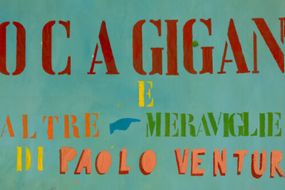From 7 December to 9 February 2025
Accepted the Artsupp Card
Within the framework of the Musei di Strada Nuova, at Palazzo Rosso, a selection of historical figurines from the 18th-century Genoese nativity scene school, belonging to the Civic Nativity Scene Collections, are exhibited during the Christmas holidays within the large iron and glass display cases designed by the architect Franco Albini (1905-1977) in the post-war period, in a presentation of great charm linked to the rationalist taste of one of the masters of 20th-century museography.
The civic collection of nativity scene figures stands out for the consistency and variety of typologies, including - among others - over five hundred pieces from the Genoese school between the 18th and 19th centuries. Among the figurines selected for this year's exhibition, in addition to the Nativity group with a richly dressed Madonna and a Saint Joseph in clerical attire, there are numerous depictions of commoners and nobles, rustic shepherds, the Three Wise Men, and characters from their rich and multiethnic entourage. Various animals of different kinds are also included, including a camel and some horses with remarkable craftsmanship.
Some of the exhibited figurines are the work of Pasquale Navone (1746-1791), as recognized by in-depth studies conducted in recent years, dispelling the legend that the main, if not exclusive, creator was Anton Maria Maragliano (1664-1739).
Furthermore, three historical nativity scene figurines depicting some "oriental" characters are present in the exhibition path "Splendid Weavings on the Silk Roads. Textile Art from Central Asia and China" set up at Palazzo Bianco in the halls of the Civic Textile Collections, which can be visited with the same ticket for the Musei di Strada Nuova. Numerous are indeed the characters that evoke the East in the scenic baroque-style nativity scenes, with jointed wooden mannequins embellished with glass eyes and fabric clothing, which have been set up in Genoese churches and noble palaces since the early 17th century. Alongside the African King Balthazar, who brings the precious myrrh as a gift, there are other figurines whose features and clothing refer to distant countries and cultures: "Moors," "Barbary," and "Circassians," carved and painted by artists observing men and women actually present in Genoa at the time, coming from Africa, Asian Turkey, the Caucasus, and the Middle East. They are diplomats, merchants, servants, and slaves, animating the multiethnic population of a port city overlooking the Mediterranean and connected to the East.
The nativity scene setups at the Musei di Strada Nuova are part of the initiative "Passport of the Genoese Nativity Scenes of the Municipality of Genoa."

Via Garibaldi, 18, Genoa, Italy
Opening hours
| opens - closes | last entry | |
| monday | Closed now | |
| tuesday | 09:00 - 18:30 | |
| wednesday | 09:00 - 18:30 | |
| thursday | 09:00 - 18:30 | |
| friday | 09:00 - 18:30 | |
| saturday | 09:30 - 18:30 | |
| sunday | 09:30 - 18:30 |
Always
There are no ongoing exhibitions.
7.00 € instead of 9.00€

From 18 September to 8 February 2026
The giant goose and other wonders

Santa Margherita Palace, Modena

Artsupp Card: museum + exhibitions 5.00 €

From 26 February to 2 February 2026
WHITE IN THE FEMININE

Palazzo Madama - Civic Museum of Ancient Art, Turin